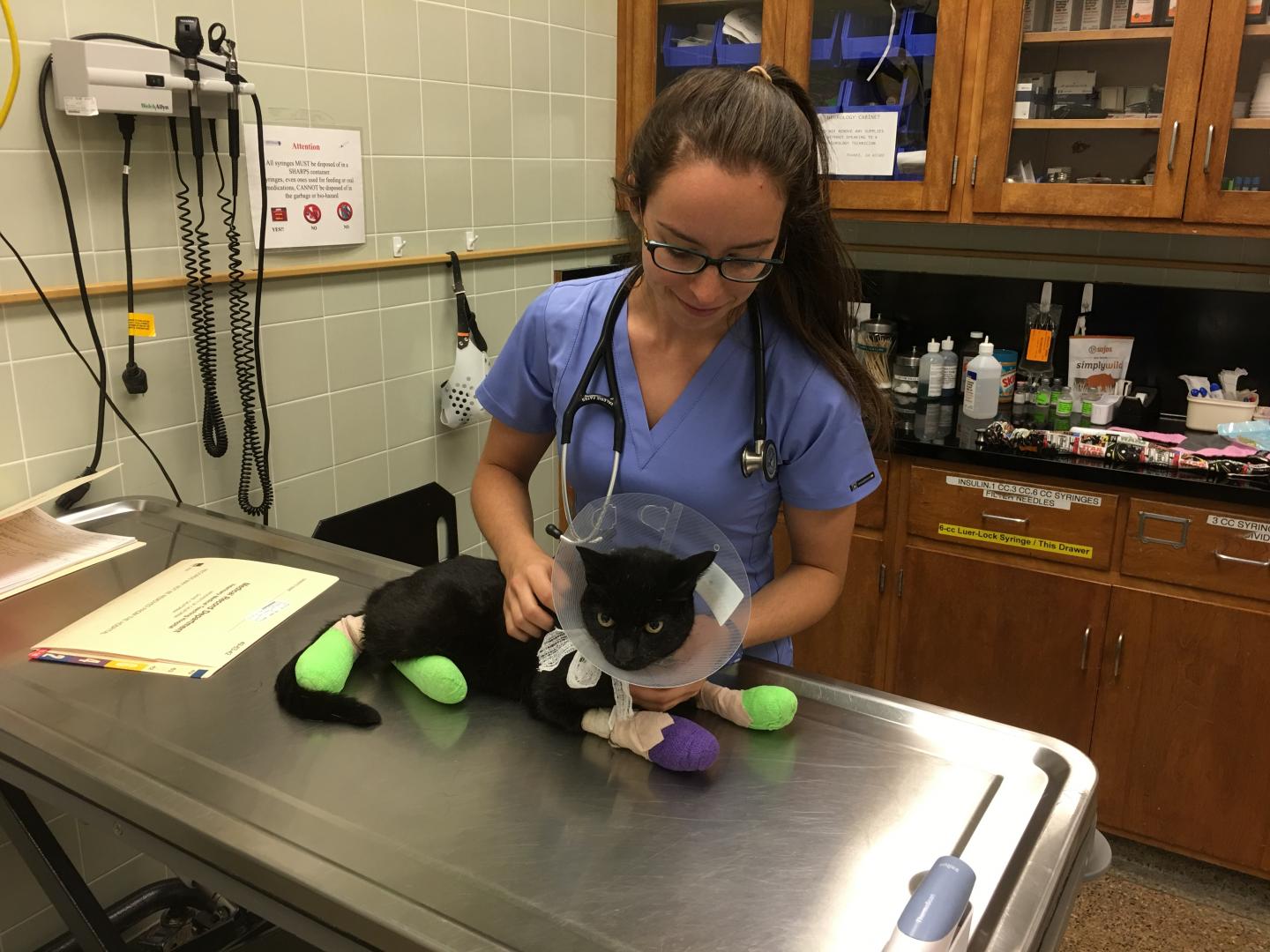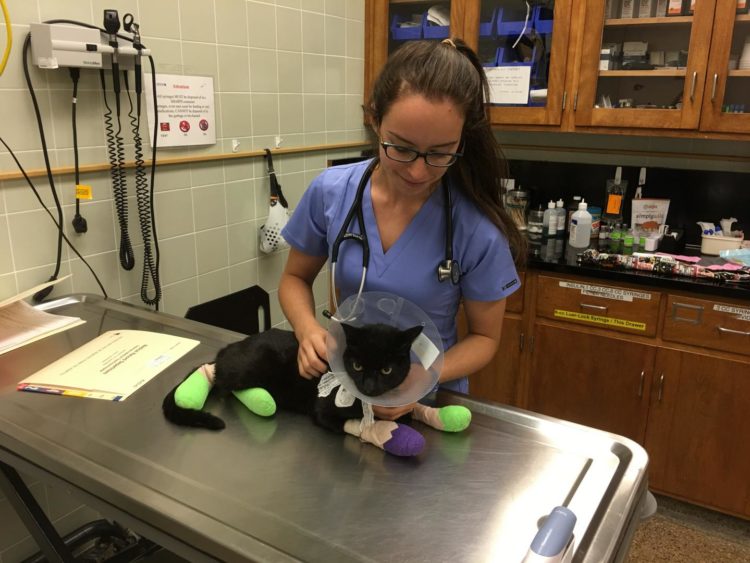Scientists learn from cats injured in california wildfires

Credit: Rob Warren/UC Davis
Cats who suffered burns and smoke inhalation in recent California wildfires also had a high incidence of heart problems, according to a new study from researchers at the University of California, Davis, Veterinary Medical Teaching Hospital. The study represents the first published research to come from the UC Davis School of Veterinary Medicine on feline victims of California wildfires and was recently published in the journal Scientific Reports.
Researchers studied 51 cats referred for treatment after the 2017 Tubbs Fire in Santa Rosa and the 2018 Camp Fire in Paradise. Echocardiograms, or heart ultrasounds, found the cats had significant cardiovascular effects, including a much higher incidence of heart muscle thickening and blood clot formation.
“What was most surprising to us was the vast number of cats that were affected and the severity of their condition,” said lead author Catherine Gunther-Harrington, assistant professor of clinical cardiology at UC Davis VMTH.
The study found more than half of the cats had heart muscle thickening and close to 30 percent had blood clots or were found to be at high risk of developing blood clots.
If cats develop blood clots, they are also at high risk of sudden death. Six of the cats in the study died or were euthanized due to cardiac issues during the course of their care, but 82 percent survived and were discharged.
TRANSLATING RESEARCH TO HUMANS
People also experience cardiovascular changes after burn injuries. Gunther-Harrington said with humans, the more severe and extensive the burn, the higher the risk of cardiovascular changes. In the cats studied, the incidence of cardiac changes was higher than that reported in humans and occurred in cats with moderate and severe burns.
“Many of these cats had moderate burns but had really severe heart changes,” said Gunther-Harrington.
Further research may help scientists understand if the severity of the problem is specific to cats or if this translates to people as well. Understanding the changes observed in cats could lead to a better understanding of the most effective treatment and prevention for both human and feline patients.
“We also know that these cats inhaled smoke in a very urban environment, exposing them to toxicants,” said Gunther-Harrington. “These cats could be the canary in the coal mine, letting us know what might happen if more people are exposed to these types of wildfires.”
FUTURE WITH FIRES
The research points to the need for veterinarians to screen for cardiovascular changes in cats as part of their treatment after a wildfire to help reduce cats’ risk of death.
“Most of these cats were able to survive and recover, despite the severity of their condition,” said Gunther-Harrington. “That gives us hope because we know there will likely be more cats in the future injured in wildfires. The more we learn, the better care we can provide for them.”
Co-author Ronald Li, an assistant professor of emergency and critical care medicine, has continued to study the mechanism responsible for the generation of blood clots in these feline fire victims. As a result of this study, the Li laboratory hopes to document a pathway that points to the most effective drug therapy to treat and prevent blood clots in future feline fire victims.
###
Other authors include veterinary cardiologists Joshua Stern and Ashley Sharpe, and veterinary critical care specialist Steven Epstein of UC Davis. The diagnostics and therapeutic management of feline burn victims reported in this study was funded through the UC Davis Veterinary Catastrophic Need Fund.
Media Contact
Amy Quinton
[email protected]
530-752-9843
Original Source
http://www.
Related Journal Article
http://dx.





